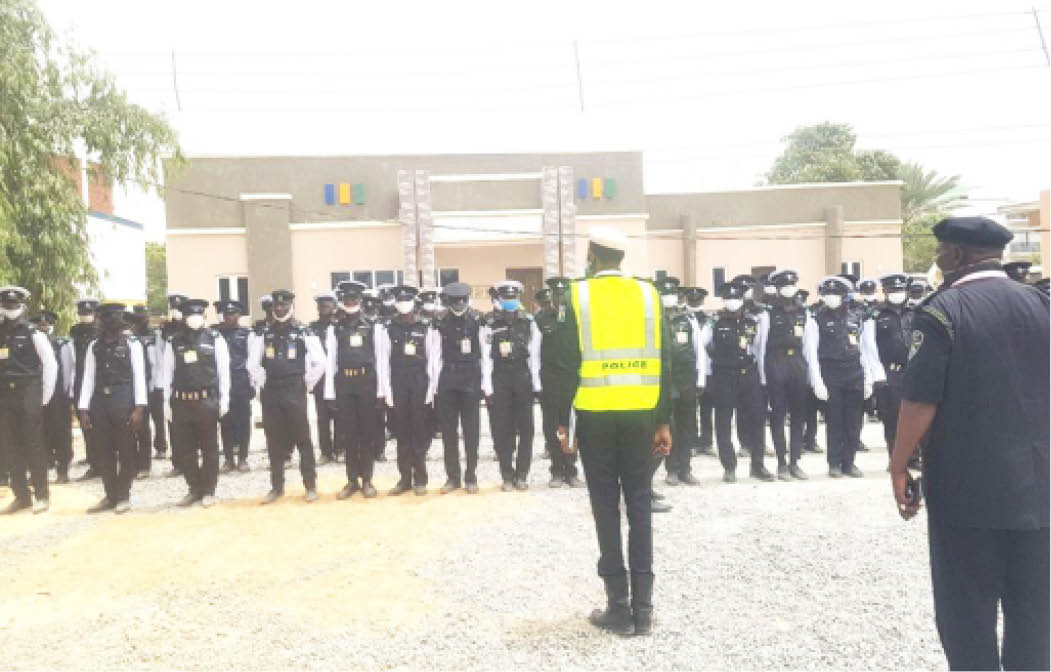The Kano State police command has commissioned 100 constabulary officers to help in controlling traffic to ensure easy movement of vehicles in the state.
Commissioning the officers at the Police Command Officers Mess in Kano, the commandant of the Constabulary Unit, DCP Muhammad Bello Dalha, said the traffic officers received two weeks of extensive training by professionals and were well equipped to help in ensuring free vehicular movement across the state.
He said the system was initiated in July 2019 by the then state police commissioner, Habu A. Sani, while the new commissioner of police, Isma’ila Shuaibu Dikko commissioned it.
He tasked the officers to stick to the duties assigned to them, and advised them to work hand-in-hand with the personnel of the Kano Road and Traffic Agency (KAROTA).
Governor Abdullahi Umar Ganduje also charged the officers to relate with motorists with good attitude.
The governor, who was represented by the managing director of the KAROTA, Baffa Babba Dan-Agundi, said the special traffic constabulary officers would provide additional manpower to the agency.
The OC Traffic, Magaji Musa Majiya, thanked the commissioner for adding manpower to the traffic unit, acknowledging that the community policing strategy initiated by the Inspector- General of Police had brought rapid development to the command.
He warned the officers against collecting bribe and urged them to respect people, as that could give them the chance to do their work easily.
Earlier, the commissioner of police said the aim of community policing was to ensure that the police and citizens share responsibilities in providing security.
In a related development, Governor Ganduje has promised to train 4,800 youths from the 44 local government areas in the state on how to be skillful in community policing.
This was disclosed by the governor during the passing out of some of the trained youths, while new intakes were welcomed at the Kano State Corporate Security Institute, Gabasawa.
Kano/Jigawa Chronicle gathered that 150 constables will be selected from each of the metropolitan local government areas and 100 from each of other local governments outside the metropolis.

 Join Daily Trust WhatsApp Community For Quick Access To News and Happenings Around You.
Join Daily Trust WhatsApp Community For Quick Access To News and Happenings Around You.


